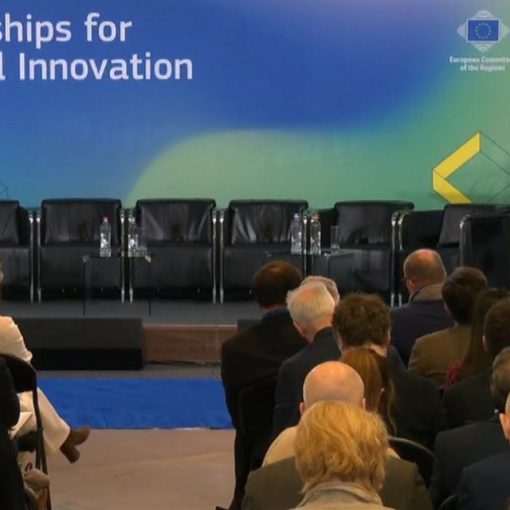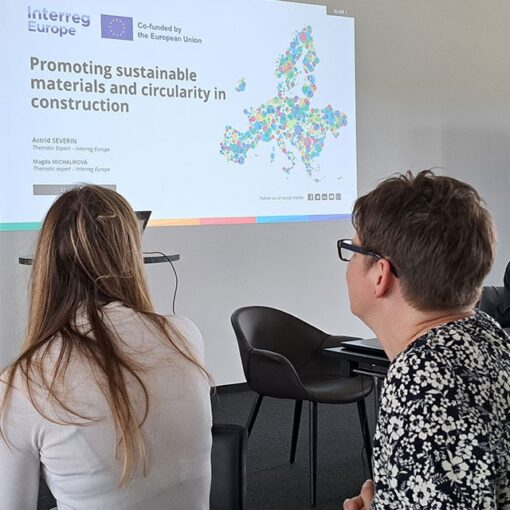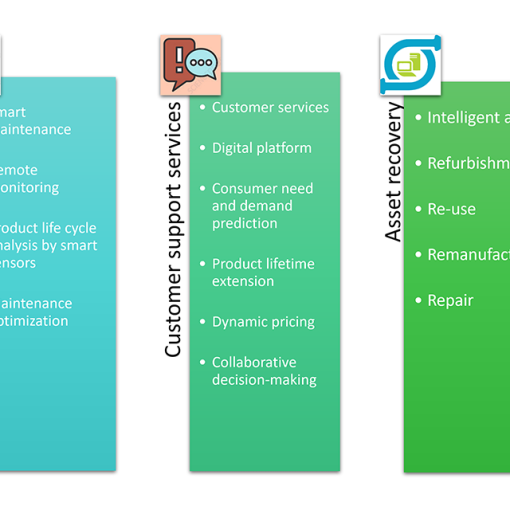Industry is the backbone of the European economy responsible for more than 20% of the EU’s total value-added and directly providing 35 million jobs. As the new industrial revolution is approaching, the European Commission is taking actions to maintain the EU industry competitiveness by taking advantage of the digital and green transformation. (European Commission 2020a)
The New Industrial Strategy for Europe [pdf] (2020) seeks for climate-neutral competitiveness and making European economy circular and sustainable. As the industry emissions account for 15% of the EU’s emissions, industry will play a crucial role in this effort (European Commission 2020b).

Digital technologies can enable our economy to be decarbonised and digitalisation will provide sustainable solutions thanks to big data. Digital technologies have the potential to enable a 20% reduction of global CO2 emissions by 2030. (DIGITALEUROPE. 2020) The twin digital and green transitions will require securing a supply of low-carbon and affordable energy and materials. A strategic investment is therefore required in securing the green energy supply and integration of renewable sources. (European Commission 2020c).
Interregional Cooperation Boost Renewables in Industry
In line with the new industrial strategy goals, the RESINDUSTRY project aims to increase the integration of renewables in the industry sector and thus decrease the energy dependency and increase the industry competitiveness in the long-term. RESINDUSTRY– Policies for Renewable Energy Sources in Industry is an Interreg Europe funded project, with partners from seven EU countries, including LAB University of Applied Sciences.
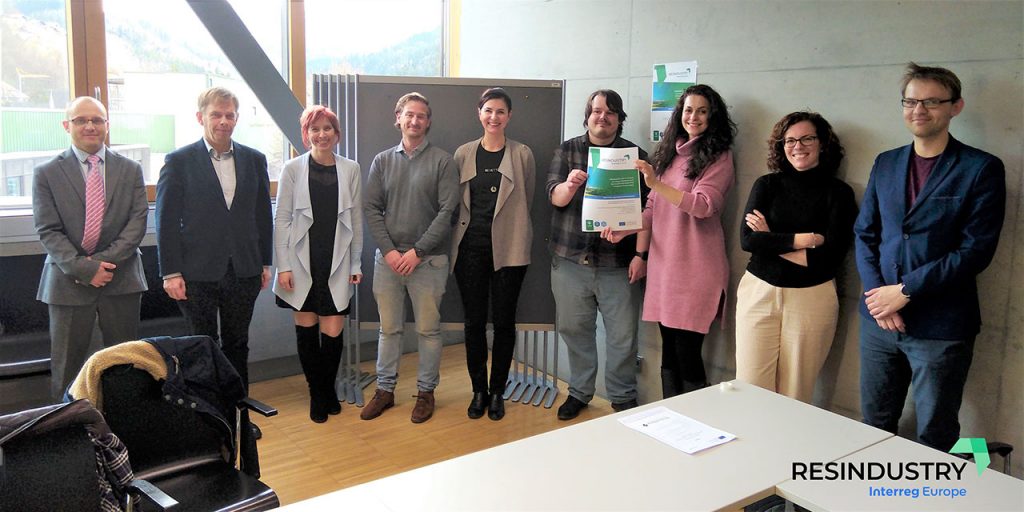
Digital Factory Vorarlberg
During the RESINDUSTRY 2nd interregional workshop in Dornbirn, Austria in March 2020, the participants visited the Digital Factory Vorarlberg research centre located in the FH Vorarlberg University of Applied Sciences campus in Dornbirn, Austria.
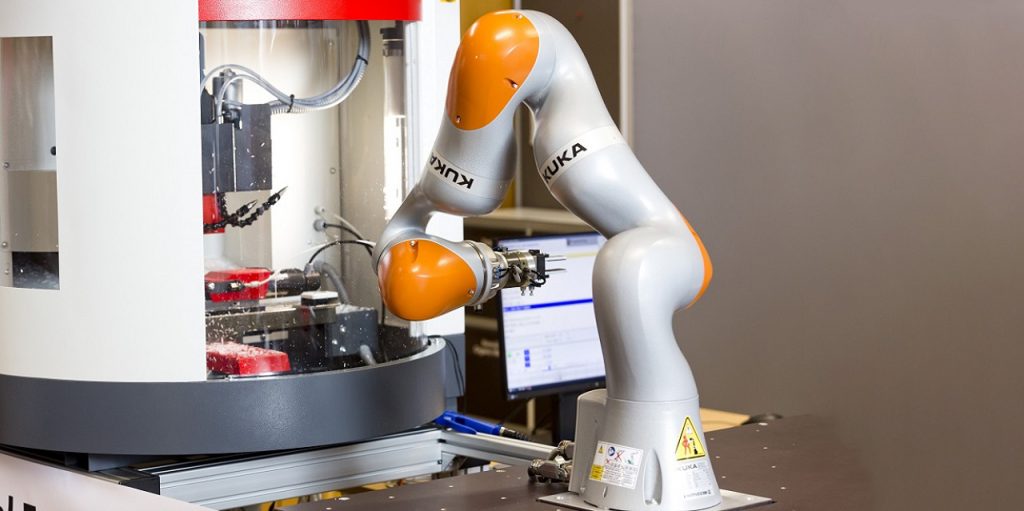
The research centre is a test laboratory, in which the goods production process (parts manufacturing, assembly, logistics, warehousing) can be simulated in real scenarios. The research centre was co-financed by the European Regional Development Fund with a budget of 198 mil EUR. (Digital Factory Vorarlberg 2019)
Also, the manufacturing industry, one of the major energy consumers, is currently in the digital transformation process. Future manufacturing plants are data-based, intelligent and transparent. The communication and workload between machines and control and planning systems are networked beyond one company door. The manufacturing process can be optimized, e.g. by moving the workload across different locations (manufacturing as a service) according to specific constraints, one of them could be the availability of renewable energy, e.g. solar energy during day and night. Another research area covered in the centre is data analytics and intelligence, where data from the cloud manufacturing platform on connected machines, workload, orders, and performance are analysed, contributing to (1) transparency in the energy system, (2) demand flexibility and (3) increasing energy efficiency. The research centre addresses various aspects of green digital transformation supporting renewable energy sources by the implementation of Industry 4.0 approaches. (Digital Factory Vorarlberg 2019)
Author
Katerina Medkova who works as an RDI specialist at LAB University of Applied Sciences and is the RESINDUSTRY Project & Communication Manager.
References
DIGITALEUROPE. 2020. Digital as key for a low carbon circular economy. [Cited 26 Apr 2020]. Available at: https://www.digitaleurope.org/resources/digital-as-key-for-a-low-carbon-circular-economy/
European Commission. 2020a. Industry. Internal Market, Industry, Entrepreneurship and SMEs. [Cited 26 Apr 2020]. Available at: https://ec.europa.eu/growth/industry_en
European Commission. 2020b. Energy-intensive industries. Internal Market, Industry, Entrepreneurship and SMEs. [Cited 26 Apr 2020]. Available at: https://ec.europa.eu/growth/industry/policy/energy-intensive-industries_en
European Commission. 2020c. A New Industrial Strategy for Europe. [Cited 26 Apr 2020]. Available at: https://ec.europa.eu/info/sites/info/files/communication-eu-industrial-strategy-march-2020_en.pdf
Links
Digital Factory Vorarlberg. 2019. FH Vorarlberg 2019. Available at: https://www.fhv.at/en/research/digital-factory-vorarlberg/
Interreg Europe. 2020b. Project Summary. RESINDUSTRY. [Cited 26 Apr 2020]. Available at: https://www.interregeurope.eu/resindustry/
Pictures
Picture 1. Pixabay. 2016. Time Lapse Photography of Blue Lights. [Cited 26 Apr 2020]. Available at: https://www.pexels.com/photo/abstract-art-blur-bright-373543/
Picture 2. Štěpánka Holečková: RESINDUSTRY Interregional Workshop in Dornbirn, Austria on 03.03.2020. [Cited 26 Apr 2020].
Picture 3. ÖROK/APA-Fotoservice/Mathis: Digital Factory Vorarlberg. [Cited 26 Apr 2020] Information extracted from IPTC Photo Metadata. Available at: https://www.google.com/search?q=digital+factory+vorarlberg&rlz=1C1CHBD_en&sxsrf=ALeKk01loLA7LorB2jDk3Jd0Wpr7975R8A:1587977320811&source=lnms&tbm=isch&sa=X&ved=2ahUKEwjZ4PjAnIjpAhUVwcQBHVz5BRsQ_AUoAXoECAsQAw&biw=1500&bih=799#imgrc=QMLLEmHrDJfnrM


